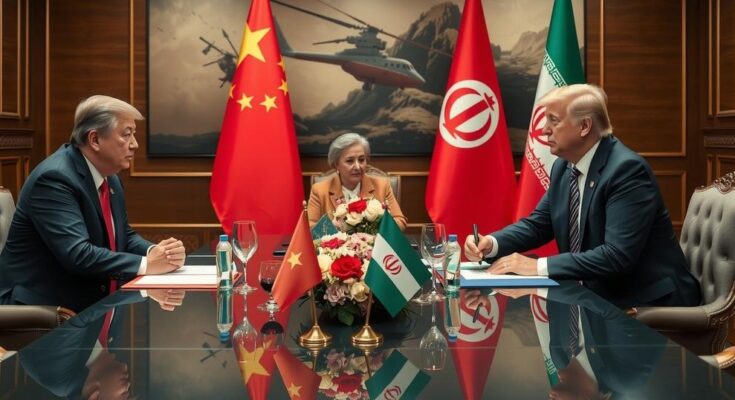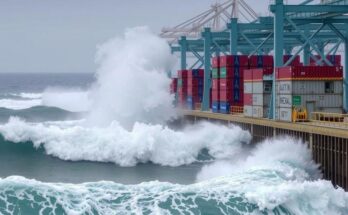Chinese and Iranian foreign ministers convened in Beijing to discuss regional conflicts, emphasizing the need for ceasefires in Gaza and Lebanon. They agreed on strengthening bilateral cooperation and aligning efforts within multilateral frameworks such as the SCO and Brics to protect their shared interests.
In a significant meeting held in Beijing, foreign ministers from China and Iran discussed key regional issues, particularly the ongoing conflicts in Gaza and Lebanon, where Iranian-supported groups such as Hamas and Hezbollah play pivotal roles. The two nations explored a shared understanding regarding the necessity for ceasefires and collaboration to address the humanitarian crises arising from these conflicts.
During this dialogue, Chinese Foreign Minister Wang Yi emphasized the importance of mutual support in core interests and urged a continuous advance in practical cooperation. He also highlighted the goal of enhancing collaboration in multilateral frameworks essential for the Global South’s collective interests. Wang specifically mentioned the importance of the Shanghai Cooperation Organization (SCO) and the Brics group, underscoring the need for these alliances to safeguard their shared goals against common challenges.
The foreign ministers’ meeting comes at a time when Iran’s influence in the Middle East is being challenged, particularly as its proxies face significant setbacks. The context of this meeting is critical as it reflects Iran’s attempts to strengthen ties with allied nations such as China amidst geopolitical tensions. The discussions centered around the need for cooperation not only in diplomatic terms but also in addressing humanitarian crises resulting from ongoing conflicts in regions where Iranian-affiliated groups are active.
This meeting between China and Iran epitomizes the evolving dynamics in international relations, especially concerning Middle Eastern conflicts. By advocating for a ceasefire and increased cooperation, both nations seek to fortify their positions within global and regional alliances. The emphasis on multilateralism and the reinforcement of economic and political collaborations signifies a strategic approach to counterbalancing external pressures, particularly from Western influences.
Original Source: www.scmp.com




